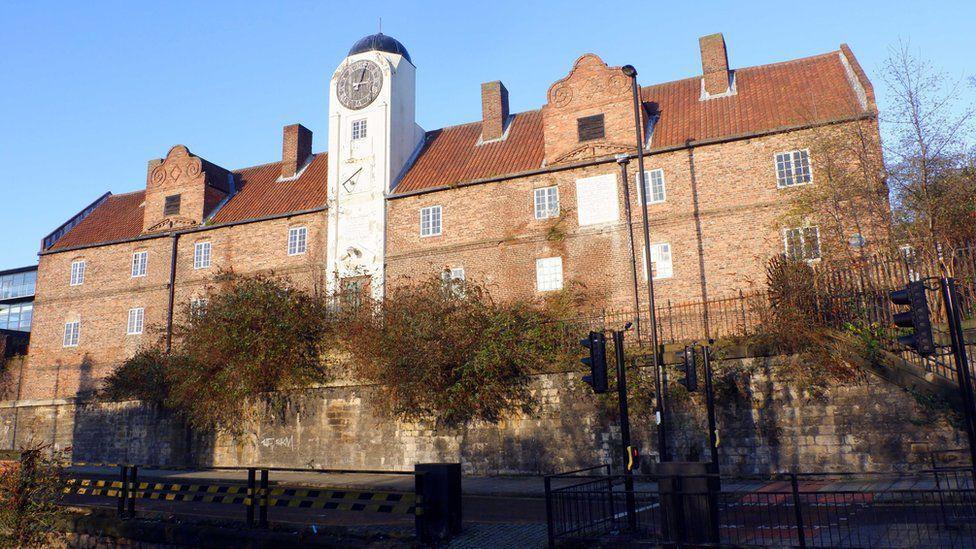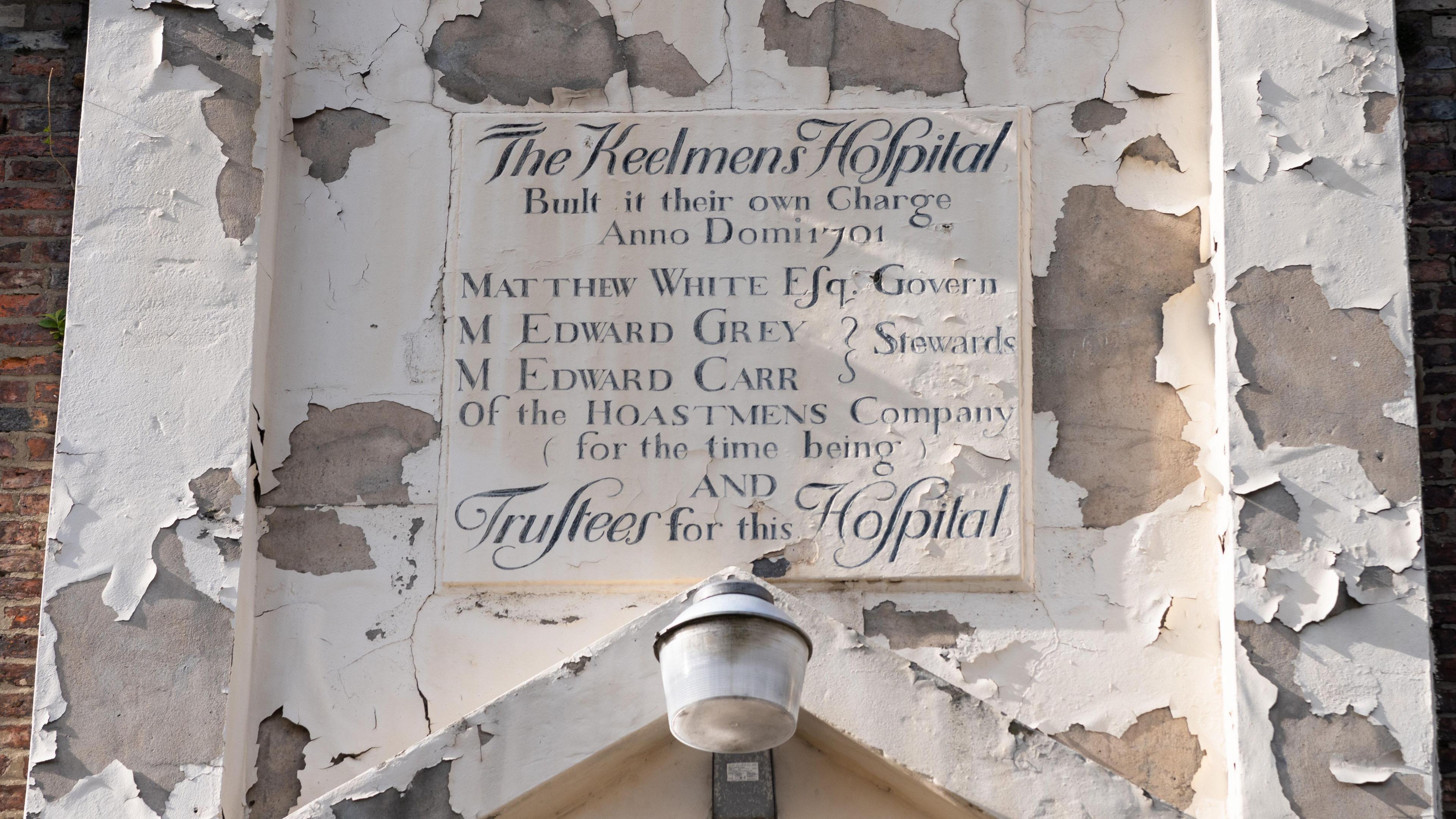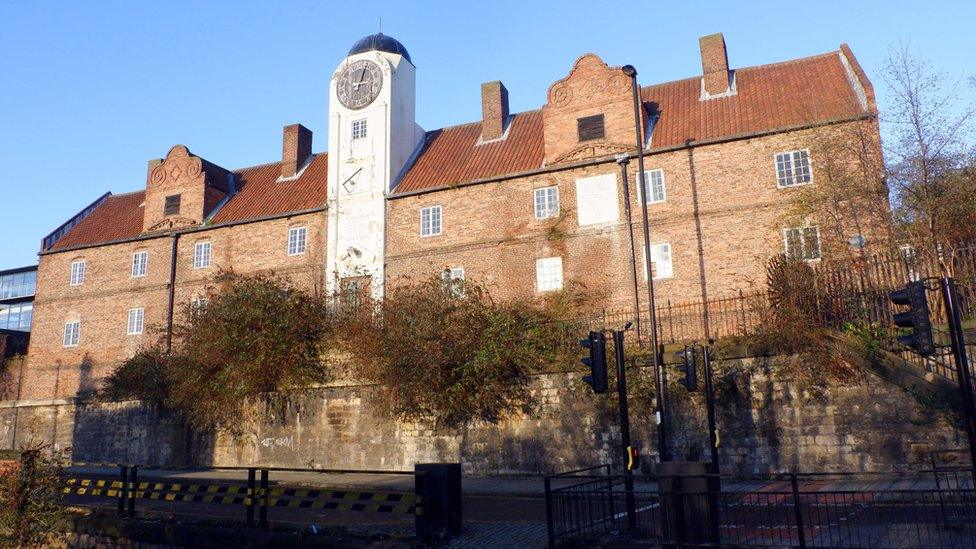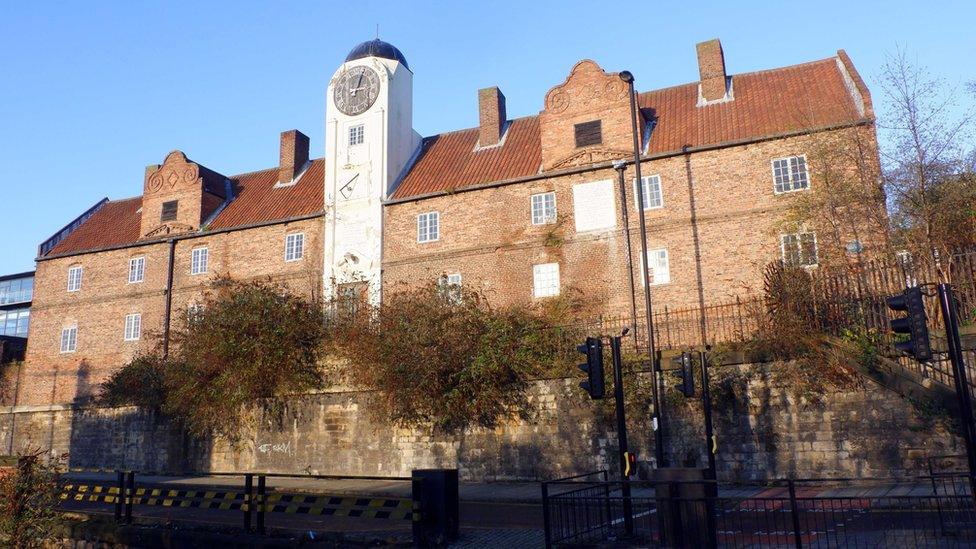Historic hospital set for new housing future

Keelmen’s Hospital was built in 1701
- Published
One of Newcastle's most historic buildings is to be given a new lease of life as affordable housing.
Keelmen's Hospital on City Road has been vacant and unused for 15 years.
The plan is to convert the Newcastle City Council-owned building into 20 one or two person flats, with the potential for specialist uses, including co-housing, specialist care support and sheltered housing.
It is hoped work would start in 2026 once funding of roughly £5,000,000 was raised and for the site to re-open in 2028.
The Grade II* listed Keelmen's Hospital was constructed in 1701 at a cost of £2,000, and for 180 years it operated as an almshouse for retired and sick keelmen and their families.

The keel men were integral to the effective running of the coal industry
The keelmen of Tyne and Wear were a group of men who worked on the keels, flat-bottomed boats that carried coal from the banks of the shallow Tyne out to ships that were too large to sail up the river.
Unusually, the hospital was paid for by the city’s 1,600 keelmen themselves, who set up a charitable trust and agreed initially to pay one penny a tide from the wages of each keel crewmember.
The building has been vacant since 2009 when it was last used as student accommodation and is on Historic England’s Heritage at Risk Register, external.
But now it is to be given renewed purpose thanks to support from The Architectural Heritage Fund (AHF) and Historic England working with Tyne & Wear Building Preservation Trust.
Martin Hulse, manager of the Tyne & Wear Building Preservation Trust said: "Keelmen's is a beautiful building that is so quiet and peaceful in the centre of the city.
"The proposal to revert it back to affordable housing seems appropriate and achievable."
He said it was the "most significant" so-called "at risk" building in Newcastle and saving it was a "huge challenge" but he was confident it could be done.
Follow BBC Newcastle on X (formerly Twitter), external, Facebook, external and Instagram, external. Send your story ideas to northeastandcumbria@bbc.co.uk
More stories from BBC North East and Cumbria
- Published17 February 2024

- Published24 February 2021
